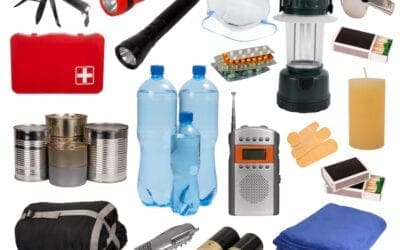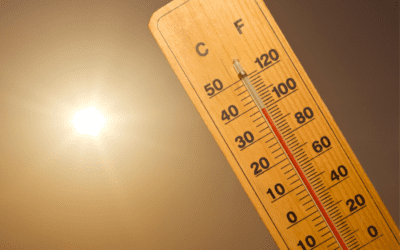What You Should Know About Pandemic Influenza

During a pandemic influenza, an influenza virus has spread worldwide, infecting a large proportion of the world’s population. A pandemic influenza differs from seasonal influenza as pandemics occur irregularly and are generally caused by novel, or newly mutated, strains of the influenza A virus.
In the last 300 years, there have been 9 instances of pandemic influenza, with the most recent being in 2009. Influenza A viruses are constantly changing, increasing the possibility of a pandemic influenza. Additionally, with increased travel availability, individuals can spread a virus from the United States to Australia in 12 hours, decreasing the time it takes for a disease to spread large distances.
In 1918, H1N1 made its debut, infecting an estimated one-third, or 500 million, of the world’s population. Also known as the Spanish Flu, the 1918 Influenza Pandemic was one of the first of its kind recorded.
Due to the seriousness and growing likelihood of a pandemic influenza, it is important to understand what you can do to prevent the infection and spread of such diseases. Thankfully, there are a number of pharmaceutical and non-pharmaceutical interventions that you can practice to prevent the spread of disease and influenza:
- Get a flu shot annually.
- Although pandemic influenza come from novel (new) flu viruses, a flu shot can help minimize the effects that the flu virus has on your body and make symptoms more manageable
- Don’t go to work when you’re sick.
- Practice good hygiene and wash your hands.
- Wear a mask in heavily populated areas to avoid breathing contaminated air.
- If flu cases are spiking, avoid public places, keep your kids home from school, and work from home, if possible.
- Teach your kids to cover their cough.
In the event of a pandemic influenza, it is possible that the government will suggest social distancing measures, school closures, or event cancelations to decrease exposure rates. If this happens, it is possible that other places will close voluntarily, including stores or gas stations. It is important that prior to this, you stock your emergency supply kit with non-perishable foods and water and fill your gas tank in case you need to leave home.
For a pandemic influenza emergency, consider adding the following supplies to your emergency kit:
- Backup batteries/power source, and directions for use of medical devices
- Disinfectants and chlorine bleach
- Flashlight and extra batteries
- Ibuprofen or acetaminophen, cough medicine, first aid supplies
- Prescription medications
Lastly, and most importantly, don’t panic. Be aware and prepared, not scared.
Archives
- February 2026 (1)
- December 2025 (1)
- November 2025 (2)
- September 2025 (1)
- July 2025 (2)
- June 2025 (3)
- April 2025 (2)
- January 2025 (2)
- December 2024 (1)
- September 2024 (2)
- August 2024 (2)
- July 2024 (1)
- June 2024 (1)
- February 2024 (1)
- July 2023 (1)
- March 2023 (1)
- October 2022 (1)
- September 2022 (1)
- August 2022 (1)
- July 2022 (2)
- June 2022 (2)
- May 2022 (1)
- April 2022 (4)
- March 2022 (1)
- February 2022 (1)
- January 2022 (1)
- December 2021 (4)
- November 2021 (3)
- September 2021 (2)
- August 2021 (3)
- July 2021 (2)
- June 2021 (1)
- May 2021 (2)
- March 2021 (1)
- December 2020 (6)
- November 2020 (8)
- October 2020 (4)
- September 2020 (7)
- August 2020 (3)
- July 2020 (11)
- May 2020 (2)
- April 2020 (4)
- March 2020 (1)
Categories
- Communicable Disease (5)
- Clinical Services (19)
- Clinical Servcies (1)
- Health Promotions (74)
- Emergency Preparedness (8)





